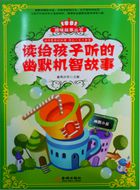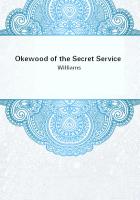I CAN remember the house at Yasnaya Polyana in the condition it was in the first years after my father's marriage.
It was one of the two-storied wings of the old mansion-house of the Princes Volkonsky, which my father had sold for pulling down when he was still a bachelor.
From what my father has told me, I know that the house in which he was born and spent his youth was a three-storied building with thirty-six rooms. On the spot where it stood, between the two wings, the remains of the old stone foundation are still visible in the form of trenches filled with rubble, and the site is covered with big sixty-year-old trees that my father himself planted.
When any one asked my father where he was born, he used to point to a tall larch which grew on the site of the old foundations.
"Up there where the top of that larch waves," he used to say; "that's where my mother's room was, where I was born on a leather sofa."
My father seldom spoke of his mother, but when he did, it was delightful to hear him, because the mention of her awoke an unusual strain of gentleness and tenderness in him. There was such a ring of respectful affection, so much reverence for her memory, in his words, that we all looked on her as a sort of saint.
My father remembered his father well, because he was already nine years old when he died. He loved him, too, and always spoke of him reverently; but one always felt that his mother's memory, although he had never known her, was dearer to him, and his love for her far greater than for his father.
Even to this day I do not exactly know the story of the sale of the old house. My father never liked talking about it, and for that reason I could never make up my mind to ask him the details of the transaction. I only know that the house was sold for five thousand paper rubles [3] by one of his relatives, who had charge of his affairs by power of attorney when he was in the Caucasus.
[3] About $3000.
It was said to have been done in order to pay off my father's gambling debts. That was quite true.
My father himself told me that at one time he was a great card-player, that he lost large sums of money, and that his financial affairs were considerably embarrassed.
The only thing about which I am in doubt is whether it was with my father's knowledge or by his directions that the house was sold, or whether the relative in question did not exceed his instructions and decide on the sale of his own initiative.
My father cherished his parents' memory to such an extent, and had such a warm affection for everything relating to his own childhood, that it is hard to believe that he would have raised his hand against the house in which he had been born and brought up and in which his mother had spent her whole life.
Knowing my father as I do, I think it is highly possible that he wrote to his relative from the Caucasus, "Sell something," not in the least expecting that he would sell the house, and that he afterward took the blame for it on himself.
Is that not the reason why he was always so unwilling to talk about it?
In 1871, when I was five years old, the zala [4] and study were built on the house.
[4] The zala is the chief room of a house, corresponding to the English drawing-room, but on a grand scale.
The gostinaya--literally guest-room, usually translated as drawing-room--is a place for more intimate receptions. At Yasnaya Polyana meals were taken in the zala, but this is not the general Russian custom, houses being provided also with a stolovaya, or dining-room.
The walls of the zala were hung with old portraits of ancestors. They were rather alarming, and I was afraid of them at first; but we got used to them after a time, and I grew fond of one of them, of my great-grandfather, Ilya Andreyevitch Tolstoy, because I was told that I was like him.
Beside him hung the portrait of another great-grandfather, Prince Nikolai Sergeyevitch Volkonsky, my grandmother's father, with thick, black eyebrows, a gray wig, and a red kaftan. [5]
[5]; Kaftan, a long coat of various cuts, including military and naval frock-coat, and the long gown worn by coachmen.
This Volkonsky built all the buildings of Yasnaya Polyana. He was a model squire, intelligent and proud, and enjoyed the great respect of all the neighborhood.















